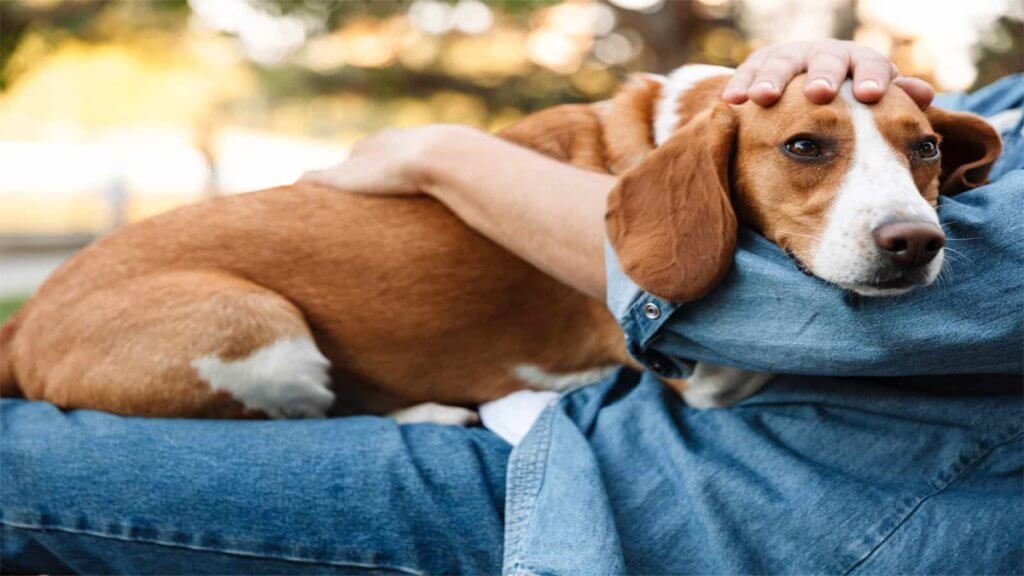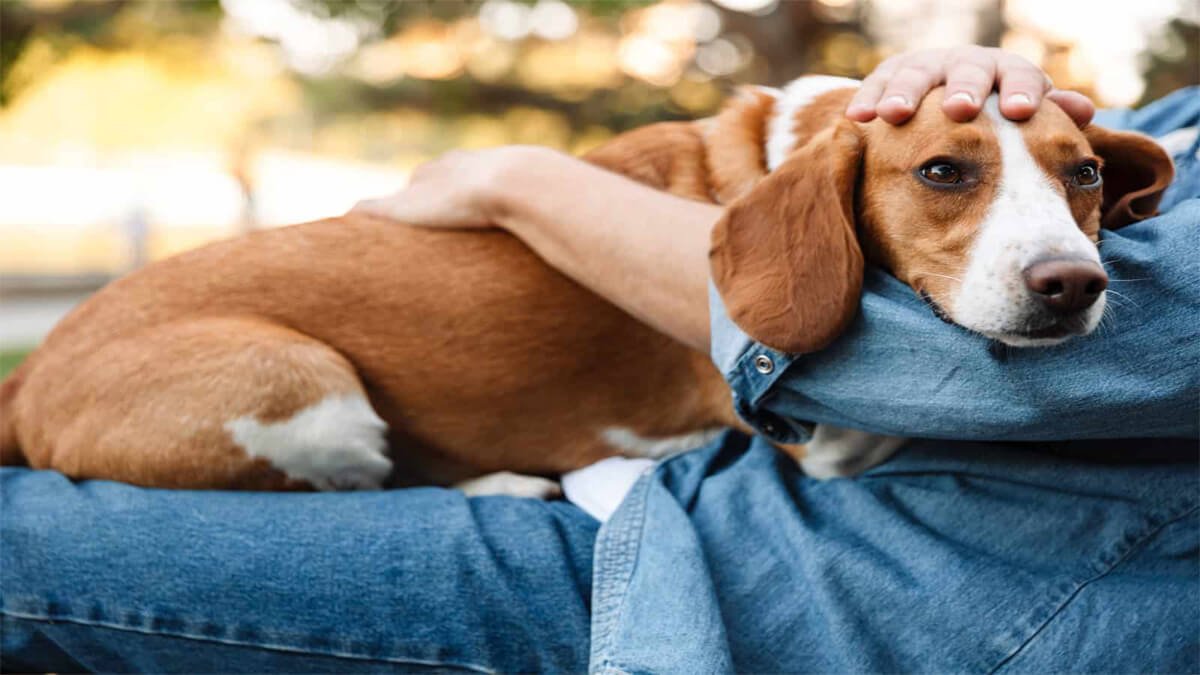Why Does My Dog Sit on Me Understanding Your Canine Companion’s Behavior! If you are a dog owner, you have probably experienced your furry friend sitting on you at some point. Whether it’s on the couch, your bed, or even on your lap, dogs often display this behavior. It might leave you wondering why your beloved canine companion has this tendency. In this article, we will explore the Why Does My Dog Sit on Me? Understanding Your Canine Companion’s Behavior various reasons behind why dogs sit on their owners and what this behavior signifies.
Table of Contents
Why Do Dogs Sit on Their Owners?
Dogs have a myriad of reasons for sitting on their owners, and it’s essential to comprehend their behavior to strengthen your bond with them. Let’s explore some of the primary reasons.

Seeking Comfort and Security
Dogs are pack animals by nature, and sitting close to their owners offers them a sense of comfort and security. In the wild, dogs seek the warmth and protection of their pack members, and as a dog owner, you become their surrogate pack leader.
Establishing Dominance
While this behavior is not as common in domesticated dogs, some may sit on their owners to assert dominance. This is more typical in untrained or poorly socialized dogs who may see themselves as the alpha in the household.
Showing Affection and Bonding
Sitting on their owner is also a way for dogs to express love and affection. It’s a sign of their attachment and fondness towards you, and they might simply enjoy being close to you.
Instinctual Behaviors of Dogs:
The Pack Mentality
To understand why dogs exhibit certain behaviors, we must look back to their wild ancestors. Dogs have a pack mentality ingrained in their DNA, and sitting on you is an instinctual way of bonding and feeling part of the pack.
Protecting the Pack Leader
In a dog’s mind, the pack leader is responsible for protection. When your dog sits on you, it could be their way of safeguarding you as their pack leader.
Territory Marking
Dogs have scent glands on their paws, and by sitting on you, they are subtly marking you as part of their territory. This behavior reinforces the bond and ownership they feel over you.
Social Interaction and Communication:
Dogs as Social Animals
Dogs are highly social creatures, and their interactions with humans are driven by their need for companionship and social bonding.
Non-Verbal Communication
Sitting on their owner is a form of non-verbal communication that dogs use to convey their emotions, such as love, trust, and a desire for attention.
Reinforcing the Bond
When your dog sits on you, and you respond positively with affection or attention, it strengthens the emotional connection between you and your pet.
Environmental Factors:
Temperature Regulation
Dogs seek warmth when they feel chilly. So, when your dog sits on you, they might simply be trying to stay warm and cozy.
Scent Identification
Dogs have an excellent sense of smell, and sitting close to you allows them to identify your unique scent, which brings them comfort and familiarity.
Familiarity and Comfort
Your dog’s favorite spot might be right beside you, where they feel secure, familiar, and loved.
Health and Well-Being:
Seeking Physical Contact
Dogs are known to be tactile animals, and physical touch is vital for their emotional well-being.
Pain or Discomfort
Sometimes, if your dog is not feeling well or is in pain, they might seek solace by sitting on you.
Emotional Support
Dogs are incredibly intuitive and can sense when their owners are feeling down. Sitting on you is their way of offering emotional support.
Training and Conditioning:
Positive Reinforcement
Using positive reinforcement, such as treats or praise, can encourage or discourage certain behaviors in dogs.
Habit Formation
If sitting on you has been positively reinforced in the past, your dog may continue to do so out of habit.
Reinforcing Obedience
Sitting on command is a common behavior trained in dogs, and they might associate sitting near you with a reward.
Managing Unwanted Behaviors:
Setting Boundaries
While sitting on you is generally harmless, it’s essential to set boundaries and ensure your dog respects your personal space when needed.
Redirecting Behavior
If your dog’s behavior becomes overwhelming or unwanted, redirecting their attention to other activities can be helpful.
Seeking Professional Help
In some cases, if your dog’s behavior is causing distress or issues, consulting a professional dog trainer or behaviorist may be beneficial.

Conclusion
In conclusion of Why Does My Dog Sit on Me Understanding Your Canine Companion’s Behavior, Understanding why your dog sits on you is key to building a strong, loving relationship with your furry companion. Whether it’s seeking comfort, showing affection, or following instinctual behaviors, your dog’s actions are rooted in their unique bond with you. Embrace this special connection and cherish the moments you spend together.
FAQs About Why Does My Dog Sit on Me
Why does my dog sit on me every time I sit down?
Your dog likely sits on you as a way to be close to you and show their affection. It’s a sign of their love and desire for companionship.
Is it okay to let my dog sit on me all the time?
It’s generally okay for your dog to sit on you, as long as it’s not causing any discomfort or behavioral issues. However, it’s essential to set boundaries and ensure your dog respects your personal space when needed.
How do I discourage my dog from sitting on me when I don’t want them to?
To discourage this behavior, you can gently move your dog to another spot or provide them with a designated place to sit. Use positive reinforcement when they choose to sit in the desired location.
Why does my dog only sit on certain family members and not others?
Dogs may prefer to sit on certain family members due to their established bonds and individual interactions. It’s a matter of comfort and familiarity.
My dog suddenly started sitting on me more frequently. Should I be concerned?
If there are sudden changes in your dog’s behavior, it’s always a good idea to monitor them closely. If you notice any other unusual symptoms or signs of distress, consult your veterinarian for a check-up.
